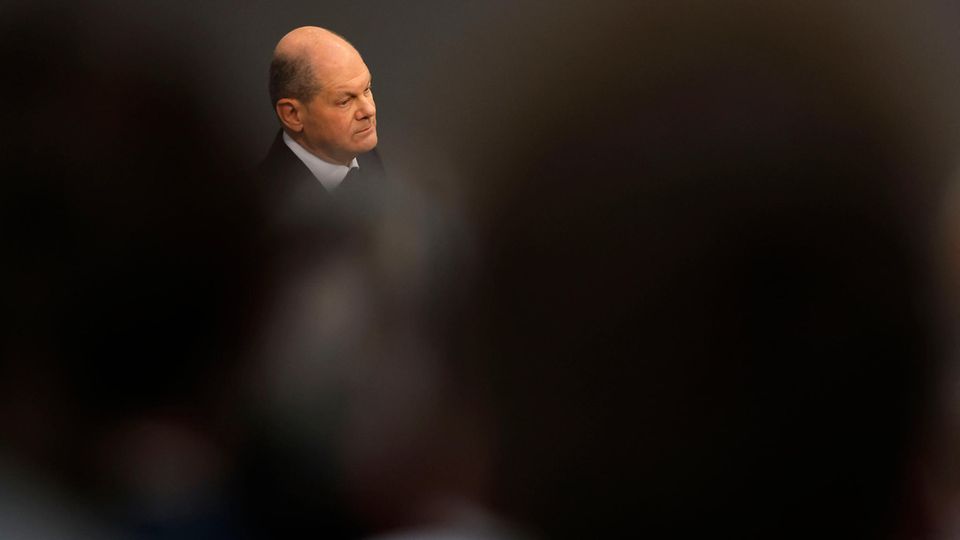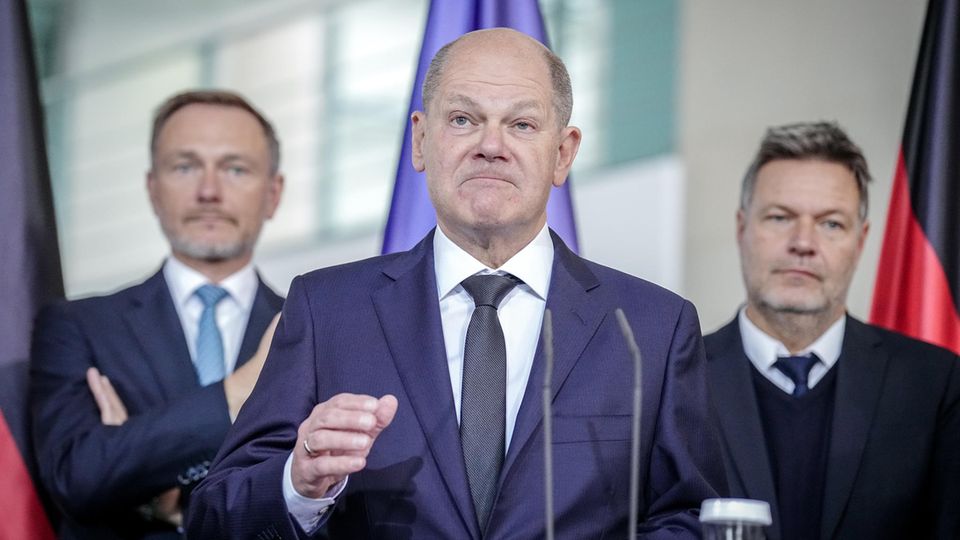Opinion
Budget decision
The Constitutional Court’s ruling will be a boomerang for Friedrich Merz
CDU leader Merz: Victory with consequences
The Union won against the traffic lights before the Constitutional Court. That could take revenge – also for a possible candidate for chancellor Friedrich Merz.
One can assume that Friedrich Merz has already given one or two thoughts to what it would be like to be the next Chancellor of the Federal Republic of Germany. Heir to Adenauer, Erhard, Kohl. Guardian of policy authority. Ultimately responsible for the well-being of the German people, whose benefit he would have to swear an oath to increase. So true God help him.
No question, an attractive position for which three arduous attempts at the CDU chairmanship could have been worth it in the end. But also a job whose job description has become a few crucial bullet points longer since this week. The Federal Constitutional Court is not only forcing Olaf Scholz and his traffic light to cash in, no, it is also leaving the next government little scope to finance what needs to be financed.
The judgment from Karlsruhe can be read in two ways in this regard. It is already setting limits on what is legally possible for a possible Merz I cabinet. And at the same time it urges a future coalition to finally reform what is politically necessary. Today’s ban is a commandment for tomorrow. The judgment must be understood as confirmation from the highest court that the debt brake in its current form is unsuitable for adequately addressing reality.
In times of change, in which wars and climate crises threaten our freedom, the promise of a federal government to the next generation cannot be: The world may burn, the German economy may suffer, but look, we are obediently sticking to the debt brake and pushing our debt is below 60 percent of gross domestic product. No thanks, Boomer.
Why Merz won and still needs a plan
If you like, Friedrich Merz made life a little more difficult for himself by suing the traffic light supplementary budget. You can’t and shouldn’t blame him for that. He is the Opposition leader, he’s just doing his job. But if Merz is serious about running for chancellor and the well-being of the German people, he must now start finding his own answers to the pressing questions: How do I finance the necessary investments in infrastructure, armaments and digitalization? How do I maintain the disciplinary character of the debt brake and at the same time create more flexibility?
Anyone who looks at politics like a football game, which happens from time to time, may find this idea strange. For him, Merz and his Union faction are the team of the hour. Won 1-0 in Karlsruhe, confidently outplaying the shaky three-man chain at the traffic lights – and that just before the opponent’s most important Champions League game, the budget adjustment meeting. You can only be as happy as the CDU and CSU were: what a slap for the traffic lights, what a historic day!
So why should the winners now have to worry about the problems of the losers?
Quite simply because politics is not football. Anyone looking for comparisons will not find them in “Kicker”, but in the House of German History. Time and again, the Chancellor and Federal Minister have pushed through forward-looking decisions that go against the traditions of their own party. Should Friedrich Merz become chancellor, it will be his Kosovo moment, his Agenda 2010. The debt brake, in its abstract appearance as a Swabian housewife turned law, may find great approval, especially in the liberal-conservative camp. It is all the more important that Merz reforms them and no one else. In politics there is this bon mot: Only Nixon could go to China. Only the conservative Republican was able to improve relations with the communists in Beijing as US President.
Merz knows only too well what that means when applied to him. Only the conservative bone from Sauerland, who completed his wealth creation at an American big capitalist joint, can credibly convey to the doubting Germans why investments in the railways, in wind and solar, in power lines and hydrogen networks are not a green-ideological idea of utopia – but without alternative.
What Friedrich Merz could suggest
Merz would have various, concrete options to choose from. There is no lack of ideas about how the federal government could take out more loans than it does now, even within the framework of the debt brake. He could also ask the Social Democrats and the Greens for a special “climate and infrastructure” fund. advertise, secured by the Basic Law and immediately provided with a repayment plan. Simple and serious, without tricks.
The CDU leader could take advantage of what becomes apparent immediately after this verdict. After all, it’s not as if only “Nice to have“Projects that a convinced Christian Democrat considers to be fantasies from the green Make-a-Wish list are at risk. No, investments that convinced market economists from the FDP support at least some of the time are also threatened.
Nobody can and should expect Merz to transform from a Paul of principles to a Saul of debts who starts the federal printing press. But that’s not the point. It’s about a pragmatic budget and financial policy in the very best Christian Democratic tradition: Why do I care about my chatter from yesterday?!
The CDU leader could take advantage of the fact that industry and trade are looking with horror at the verdict of the constitutional judges – classic Union milieu. And last but not least, a future Chancellor Merz could point to another ruling in these days of aggressive appreciation for the constitutional judges. It is from April 2021. The urgency of the climate crisis has long since arrived in Karlsruhe.





